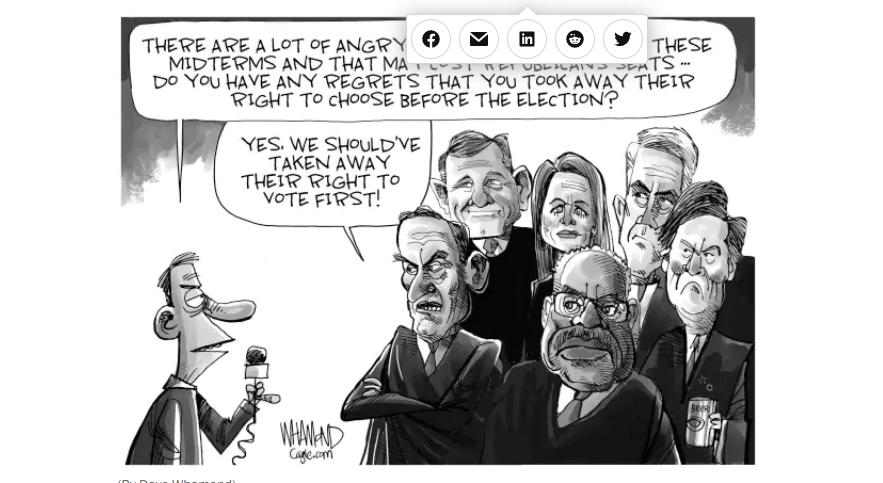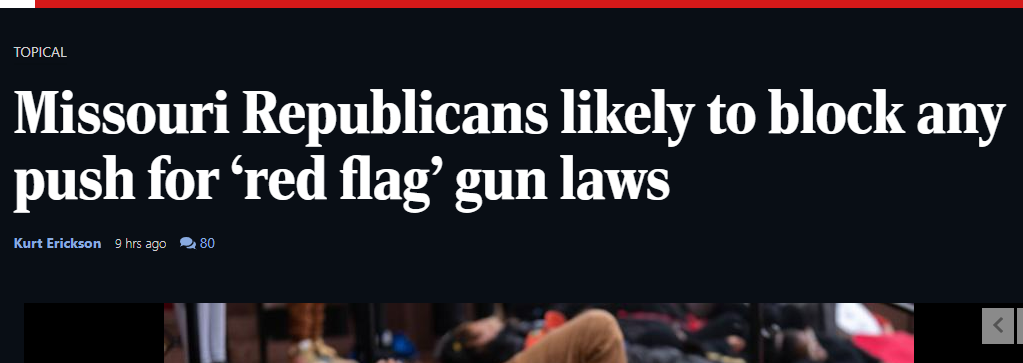Of course they will. The last post explained that the shooter couldn’t buy his assault weapon from a gun store, because he couldn’t pass the FBI background check. So he legally bought the gun in a private sale. His parents realized he shouldn’t have a firearm and asked the police to take it away from him, but Missouri law doesn’t allow police to do that. So some arrangement was made to give the gun to a third party known to the parents. Who that was hasn’t been made public. The shooter was able to get his assault weapon back, and so he went to his old high school and killed a student and a teacher, and seriously injured several others.
If there was ever a case in which a red flag law might very well have stopped a shooting, this was it. But the Missouri governor and legislature prefer guns to children. And I doubt this will make any difference in the midterm elections. Several state legislature seats aren’t even being contested; no Democrat is running.
Republicans who control state government say they see no need to enact public safety laws that might have taken away the gun used by a school shooter in St. Louis last Monday.
“I doubt very seriously any red flag laws will come through the House,” said West, who is a former police officer. “I think we have enough gun laws in place and we have a lot of other pressing issues.”
Their position on red flag laws is, bascially, they don’t work because we said so. Right now only 19 states have red flag laws — mostly the more liberal ones, with tighter gun laws — and some states that have them are barely using them.
Chicago is one of the nation’s gun violence hotspots and a seemingly ideal place to employ Illinois’ “red flag” law that allows police to step in and take firearms away from people who threaten to kill. But amid more than 8,500 shootings resulting in 1,800 deaths since 2020, the law was used there just four times.
It’s a pattern that’s played out in New Mexico, with nearly 600 gun homicides during that period and a mere eight uses of its red flag law. And in Massachusetts, with nearly 300 shooting homicides and just 12 uses of its law.
An Associated Press analysis found many U.S. states barely use the red flag laws touted as the most powerful tool to stop gun violence before it happens, a trend blamed on a lack of awareness of the laws and resistance by some authorities to enforce them even as shootings and gun deaths soar.
In other words, the people in charge of enforcing this stuff are not enforcing it, because they prioritize gun rights over public safety. A Pew Research report from last year pretty much says the same thing. However, Pew says that in the few places where red flag laws are taken seriously, they do appear to be having an impact.


